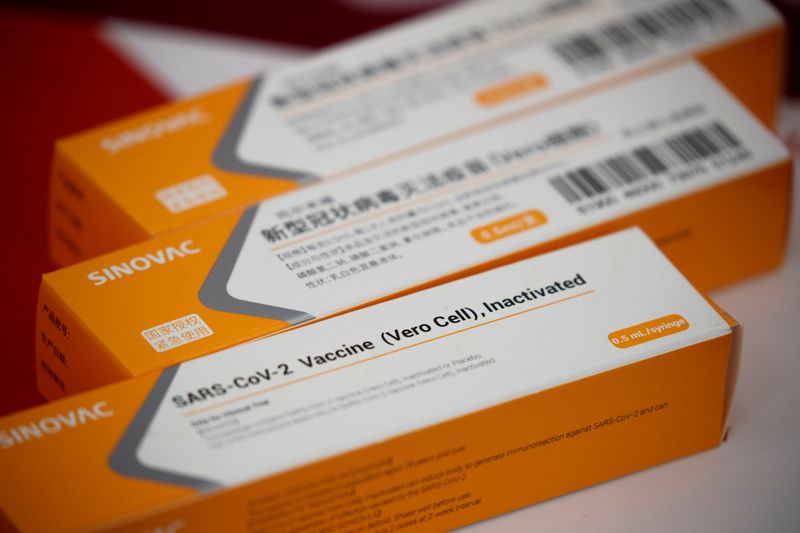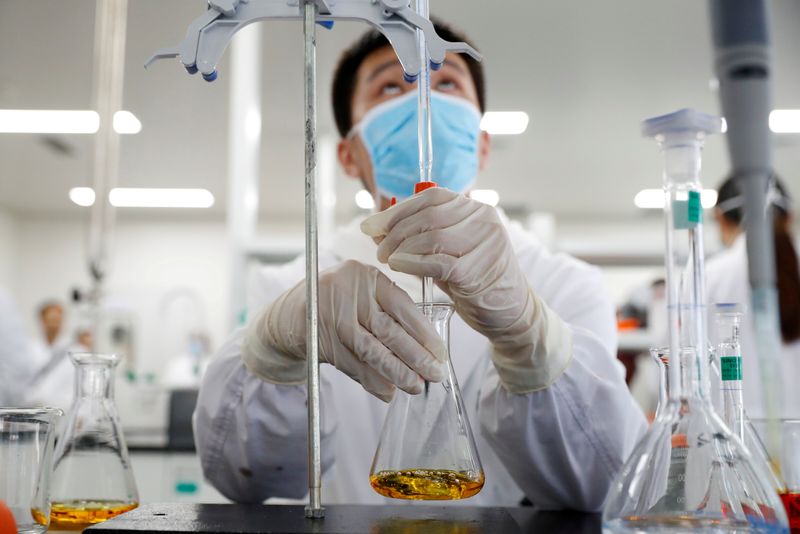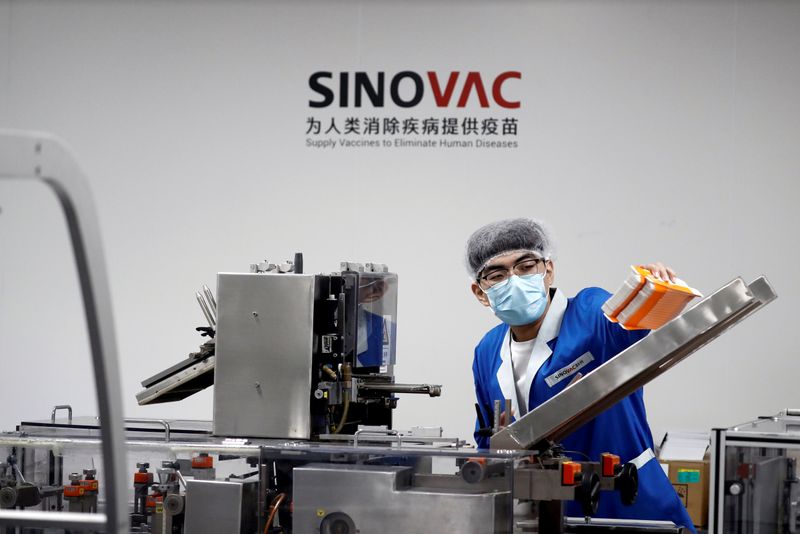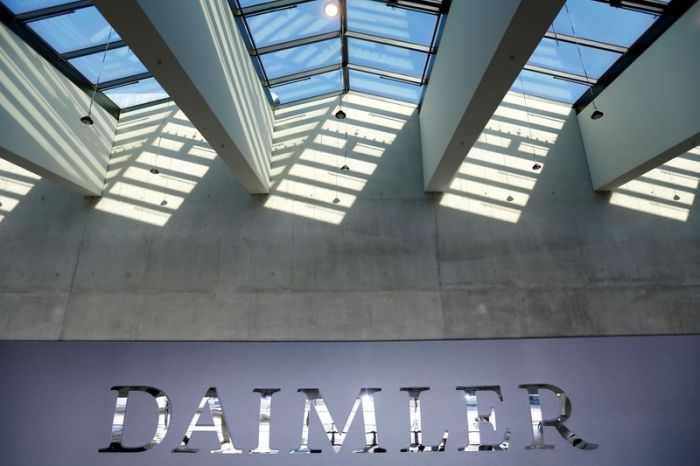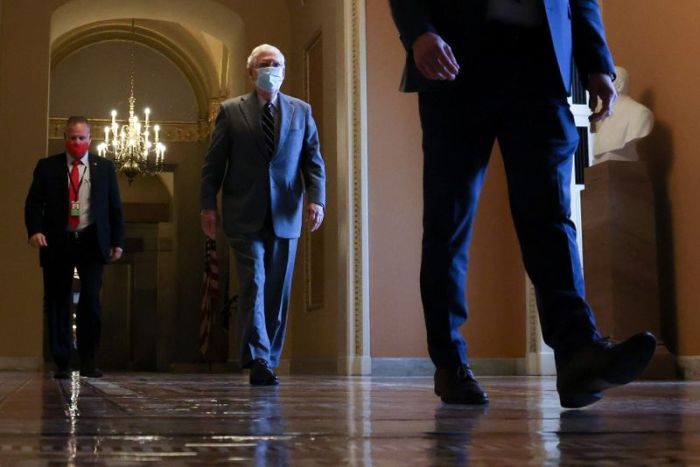BRASILIA (Reuters) – Brazil’s Sao Paulo state is set to begin importing the first of 46 million doses of China’s Sinovac vaccine against COVID-19 this week, while the federal government takes a more cautious approach with a vaccine developed by Pfizer Inc.
Federal health officials met with Pfizer representatives on Tuesday as Brazil seeks to secure vaccine supplies. The Health Ministry said in a statement that it would buy the Pfizer vaccine, currently in Phase 3 trials, if it was proven safe and was registered with health authority Anvisa.
As it draws up immunization plans, the ministry will also meet this week with Johnson & Johnson, India’s Bharat Biotech and the makers of Russia’s Sputnik V vaccine.
Brazil has the third-highest coronavirus case count in the world, leading many pharmaceutical companies to do trials of their vaccines in South America’s largest country.
State health authorities have taken a more aggressive stance than their federal counterparts on securing vaccine supplies.
The director of Sao Paulo state’s Butantan Institute biomedical center, Dimas Covas, told a congressional hearing on Tuesday that Butantan expected to have 46 million doses of Sinovac ready in January to be used if approved by Brazil’s health regulator Anvisa.
Butantan is organizing the Phase 3 trials of the vaccine in Brazil, with Covas saying preliminary results indicate it has an excellent safety profile.
Covas said 10,000 volunteers had already received about 19,000 shots of the two-dose vaccine, and 2,000 other people had still to be included in the trials.
Anvisa suspended the trials for a day and a half last week after the death of a volunteer, which police reported as a suicide and Butantan said had no relation to the vaccine.
The temporary halt had no affect on the clinical trials, Covas said, adding that Butantan had a “very good understanding” with Anvisa.
Butantan and Anvisa have sent experts to China where they are in a two-week quarantine before they can visit vaccine facilities, they said.
(Reporting by Anthony Boadle, Ricardo Brito and Maria Carolina Marcello; Writing by Jake Spring; Editing by Sonya Hepinstall and Peter Cooney)

